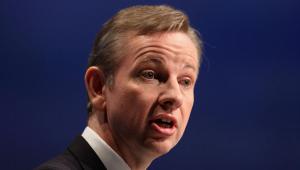Fiscally speaking today’s Budget was always going to be a non-event. The die was cast last year when the government decided to batter demand by rushing forward with its plan to shrink the state. Today’s halfpennies off thresholds and tinkering with duty are negligible by comparison.
Yet this Budget is significant, in a deeper sense.
Conventional wisdom now says we’ve emerged from the recession in a puzzling state. A massive failure of markets has not prompted a new politics of market regulation. Across Europe centre-Left parties that have traditionally been more critical of markets are not doing especially well. The truculence of the bankers in the face of demands for moderation is founded (so the argument runs) on the paradoxical endurance of beliefs about the supremacy of market forces.
And yet, at least some of the nostrums of the previous neo-liberal era have been shredded, as George Osborne today proved.
Take the notion that monetary policy must be cordoned off and handed over to bankers because they know best and are free from the pressures of politics. The performance of the Bank of England, let alone the other central banks, has put paid to that.
It wasn’t that long ago we were hearing neo-liberal cries that fiscal policy should also be hived off to independent bodies. The creation of the Office for Budget Responsibility now looks like the last gasp of that old doctrine.
A doctrine that the Chancellor of the Exchequer plainly does not believe. Months after its creation, the OBR is becoming irrelevant. Its judgements are being ignored. Because George Osborne believes first and foremost that budgeting is not some technocratic exercise but a political art form.
Today’s Budget is partisan from start to finish. It is a Budget inflected by focus groups and Lord Ashcroft’s huge spending on Tory polling. It is a Budget designed for Tory campaigners and positioning.
Osborne shows himself to be a quintessential party politician but not a doctrinaire – in the sense of believing some theory about decoupling tax and spend from the grubby hands of politicians.
He proves we are indeed in the post-crash era. Now, for better or worse, political choices supersede those of technocrats and central bankers. The latter will fight back. Control of inflation is the battleground as – a whisper and an intuition rather than something to be openly avowed – the political class begins to see the attractions of a mildly sustained hike in prices.
So, today two kinds of judgement must be made. One is over the detail. The media obsess, but most of today’s measures are transient and small scale. The other, larger judgement is about political capacity. The Tories, determined to shrink government, turn out to be reinstating the old belief that politics trumps economic technocracy, and democrats will find it hard not to applaud.
David Walker is the former managing director for communications at the Audit Commission











